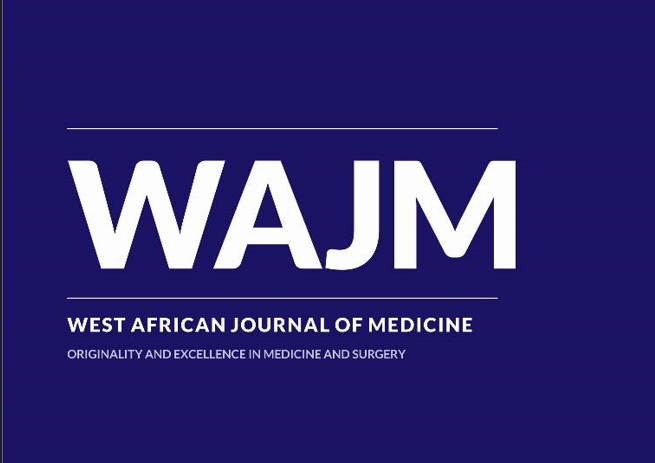ORIGINAL: COVID-19 and Activities of Daily Living Among Primary Health Care Workers in Ekiti State, South-West Nigeria
West African Journal of Medicine 2024 February; 41(2): 169-174 PMID: 38581692
Keywords:
COVID-19, Depression, Health Systems, Health workforce, Primary HealthcareAbstract
Background and objectives: Globally, COVID-19 has greatly impacted humans physically, socially, mentally, and economically. No doubt, healthcare workers seemed to bear the greatest impact. The study therefore assessed the impact of COVID- 19 on the primary healthcare workers' daily activities in Ekiti, Southwest, Nigeria.
Methods: The study was a cross-sectional study using a quantitative data collection method among 716 primary healthcare workers. Respondents were selected using an online convenience sampling method via their social media platforms. Data was collected, collated, and analyzed using SPSS version 25 software and presented as frequency tables, mean and standard deviation. Bivariate/multivariate analyses were conducted using t-tests and ANOVA statistics. The level of statistical significance was set at p<0.05.
Results: The mean age of respondents was 44.4+6.4SD with less than half (47.1%) between 41-50 years age group. The majority of the respondents (89.4%) were female and almost all (96.2%) were married. Ninety percent (90%) had ever heard of Coronavirus and (85.8%) had to spend more money on activities of daily living such as transportation (90.1%), groceries (80.6%), assisting relations (95.8%) and sanitary measures (disinfection) at home (95.0%). COVID-19 had a huge negative impact on the majority (89.7%) of healthcare workers with a mean score of 22+4.8.
Conclusion: COVID-19 negatively impacted the daily living and professional duties of primary healthcare workers which reflected in their psychological, physical, social and economic well-being. Disease outbreaks are unlikely to disappear soon, hence, global proactive interventions and homegrown measures should be adopted to protect healthcare workers and save their lives.


